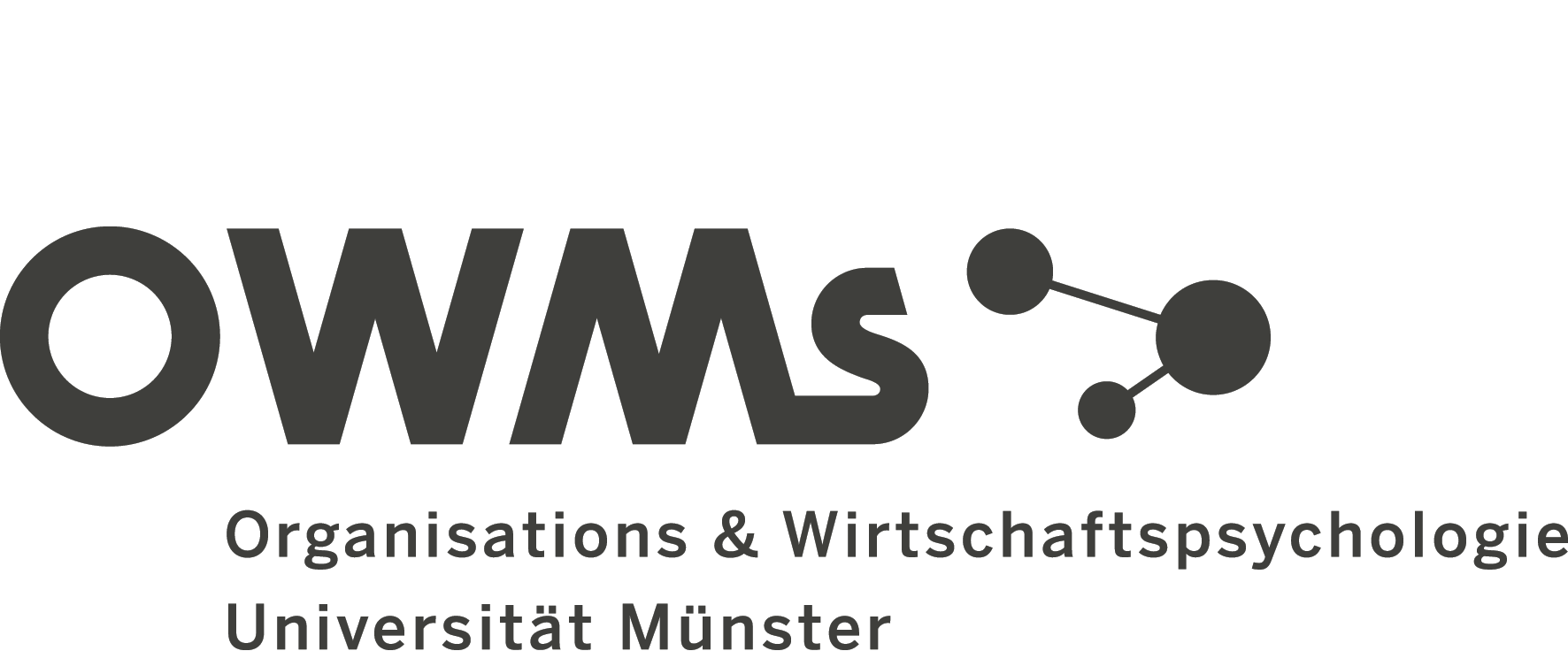
Virtual Teams and Online Communities
Due to increasing globalization and digitalization of business processes, electronic media become more and more the standard collaboration tool in and between organizations. A recent survey of the Institute for Corporate Productivity shows that about 80% of companies with more than 10.000 employees use or plan to use virtual collaboration tools. Perhaps the most impressive examples for the potential of virtual collaboration are non-profit online communities generating new products in Open Source Software development (Linux, Mozilla, etc.) or large encyclopedias in Open Content projects (Wikipedia, etc.).
While virtual collaboration has many advantages, there are also challenges for the people involved. In our research, we address both success factors as well as new solutions for these challenges. Among the topics we investigate are:
- How does trust evolve in virtual teams, and how can trust be maintained without face-to-face contact?
- How to lead and motivate members of virtual teams across distance (e-leadership)?
- Which competencies are needed by members and managers of virtual teams?
- What can we learn from Linux and Wikipedia to improve knowledge management in business companies?
Currently, many our studies are realised as part of the interdiciplinary research group "Trust and Communication in a Digitized World" at the University of Münster (supported by the Deutsche Forschungsgemeinschaft).
Publications

Reviews:
Hertel, G., Stone, D., Johnson, R., & Passmore, J. (2017). The Wiley Blackwell Handbook of the Psychology of the Internet at Work. Chichester: Wiley-Blackwell. [flyer]
------------
------------Höddinghaus, M., Sondern, D. & Hertel, G. (2021). The automation of leadership functions: Would people trust decision algorithms? Computers in Human Behavior, 116, 106635. https://doi.org/10.1016/j.chb.2020.106635
------------
Breuer, C., Hüffmeier, J., Hibben, F., & Hertel, G. (2020). Trust in teams: A taxonomy of perceived trustworthiness factors and risk-taking behaviors in face-to-face and virtual teams. Human Relations, 73(1), 3–34. https://doi.org/10.1177/0018726718818721
------------
Hertel, G., Meeßen, S. M., & Höddinghaus, M. (2020). Trust in the Context of e-HRM. In Bondarouk, T. & Fisher, S. (Eds.), Encyclopedia of Electronic HRM (pp. 76–81). Berlin: De Gruyter Oldenbourg. https://doi.org/10.1515/9783110633702-012. [Link]
------------
Wohlers, C. & Hertel, G. (2018). Longitudinal effects of Activity-Based Flexible Office Design on teamwork. Frontiers in Psychology, 9, 2016. DOI=10.3389/fpsyg.2018.02016
------------
Breuer, C., Hüffmeier, J., & Hertel, G. (2017). Vertrauen per Mausklick: Wie Vertrauen in virtuellen Teams entstehen kann. Personal Quarterly, 69, 2, 10-16.
------------
Wohlers, C., & Hertel, G. (2017). Choosing where to work at work – Towards a theoretical model of benefits and risks of activity-based flexible offices. Ergonomics, 4, 467-486.
------------
Breuer, C., Hüffmeier, J., & Hertel, G. (2016). Does trust matter more in virtual teams? A meta-analysis of trust and team effectiveness considering virtuality and documentation as moderators. Journal of Applied Psychology, 101, 1151–1177.
------------
Hertel, G., & Orlikowski, B. (2015). Project management in distributed virtual teams. In Wastian, M., von Rostenstiel, L., West, M. A., & Braumandl, I. (Eds.), Applied Psychology for Project Managers (p. 305-322). Berlin: Springer.
------------
Hertel, G. (2013). Zusammenarbeit mittels elektronischer Medien: E-Leadership und virtuelle Teams [Cooperation with electronic media: E-Leadership and virtual teams]. In Sarges, W. (Ed.), Management-Diagnostik (4th. edition; pp. 162-171). Göttingen: Hogrefe.
------------
Hertel, G., & Lauer, L. (2012). Führung auf Distanz und E-Leadership – die Zukunft der Führung? [Management across distance and E-Leadership - the future of leadership?] In Grote, S. (Ed.), Die Zukunft der Führung (pp. 103-118). Berlin: Springer.
------------
Krumm, S., & Hertel, G. (2012). Knowledge, Skills, Abilities and Other Characteristics (KSAOs) for Virtual Teamwork. In A. Bakker & D. Derks (Eds.), The Psychology of Digital Media and Work (pp. 80-99). East Sussex, UK: Psychology Press.
------------
Hertel, G. (2007). Motivating job design as a factor in Open Source governance. Journal of Management and Governance, 11(2), 129-137.
------------
Konradt, U. & Hertel, U. (2007). Telekooperation und virtuelle Teamarbeit. [Telecooperation and virtual teamwork]. München: Oldenbourg.
------------
Hertel, G., Geister, S., & Konradt, U. (2005). Managing virtual teams: A review of current empirical research. Human Resource Management Review 15, 69-95.
Empirical Studies:
Gerdenitsch, C., Korunka, C., & Hertel, G. (2017). Need-supply fit in an Activity-based Flexible Office: A longitudinal study during relocation. Environment and Behavior. [Link]
------------
Wohlers, C., Hartner-Tiefenthaler, M. & Hertel, G. (2017). The Relation between Activity-based Work Environments and Office Workers’ Job Attitudes and Vitality. Environment & Behavior. [PDF]
------------
Krumm, S., Kanthak, J., Hartmann, K., & Hertel, G. (2016). What does it take to be a virtual team player? Human Performance, 29, 123-142.
------------
Krumm, S., Terwiel, K. & Hertel, G. (2013). Challenges in norm formation and adherence: The knowledge, skills, and ability requirements of virtual and traditional cross-cultural teams. Journal of Personnel Psychology, 13(1), 33-44.
------------
Rack, O., Ellwart, T., Hertel, G. & Konradt, U. (2011). Team-based rewards in computer mediated groups. Journal of Managerial Psychology, 26, 419-438.
------------
Wittchen, M., Kleinlein, N. & Hertel, G. (2011). Zielvereinbarungen und Kommunikationsmanagement als komplementäre Führungsstrategien in virtuellen Teams. Wirtschaftspsychologie (3), Themenheft 'Kooperation im virtuellen und globalem Kontext'.
------------
Schroer, J. & Hertel, G. (2009). Voluntary engagement in an open web-based encyclopedia: Wikipedians, and why they do it. Media Psychology, 12, 96-120.
------------
Hertel, G., Schroer, J., Batinic, B. & Naumann, S. (2008). Do shy persons prefer to send e-mail? Personality effects on communication media preferences in threatening and non-threatening situations. Social Psychology, 39, 231-243.
------------
Wittchen, M., Schlereth, D. & Hertel, G. (2007). Indispensability effects under temporal and spatial separation: Motivation gains in a sequential task during anonymous cooperation on the Internet. International Journal of Internet Science, 2(1), 12-27.
------------
Geister, S., Konradt, U. & Hertel, G. (2006). Effects of process feedback on motivation, satisfaction and performance in virtual teams. Small Group Research, 37, 449-489.
------------
Hertel, G., Konradt, U. & Voss, K. (2006). Competencies for virtual teamwork: Development and validation of a web-based selection tool for members of distributed teams. European Journal of Work and Organizational Psychology, 15, 477-504.
------------
Hertel, G., Konradt, U. & Orlikowski, B. (2004). Managing distance by interdependence: Goal setting, task interdependence, and team-based rewards in virtual teams. European Journal of Work and Organizational Psychology, 13, 1-28.
------------
Hertel, G., Deter, C. & Konradt, U. (2003). Motivation gains in computer-mediated work groups. Journal of Applied Social Psychology, 33, 2080-2105.
------------
Hertel, G., Niedner, S. & Herrmann, S. (2003). Motivation of software developers in Open Source projects: An internet-based survey of contributors to the Linux kernel. Research Policy, 32, 1159-1177.
------------
Konradt, U., Hertel, G. & Schmook, R. (2003). Quality of management by objectives, task-related stressors and non-task-related stressors as predictors of stress and job satisfaction among teleworkers. European Journal of Work and Organizational Psychology, 12, 61-80.

